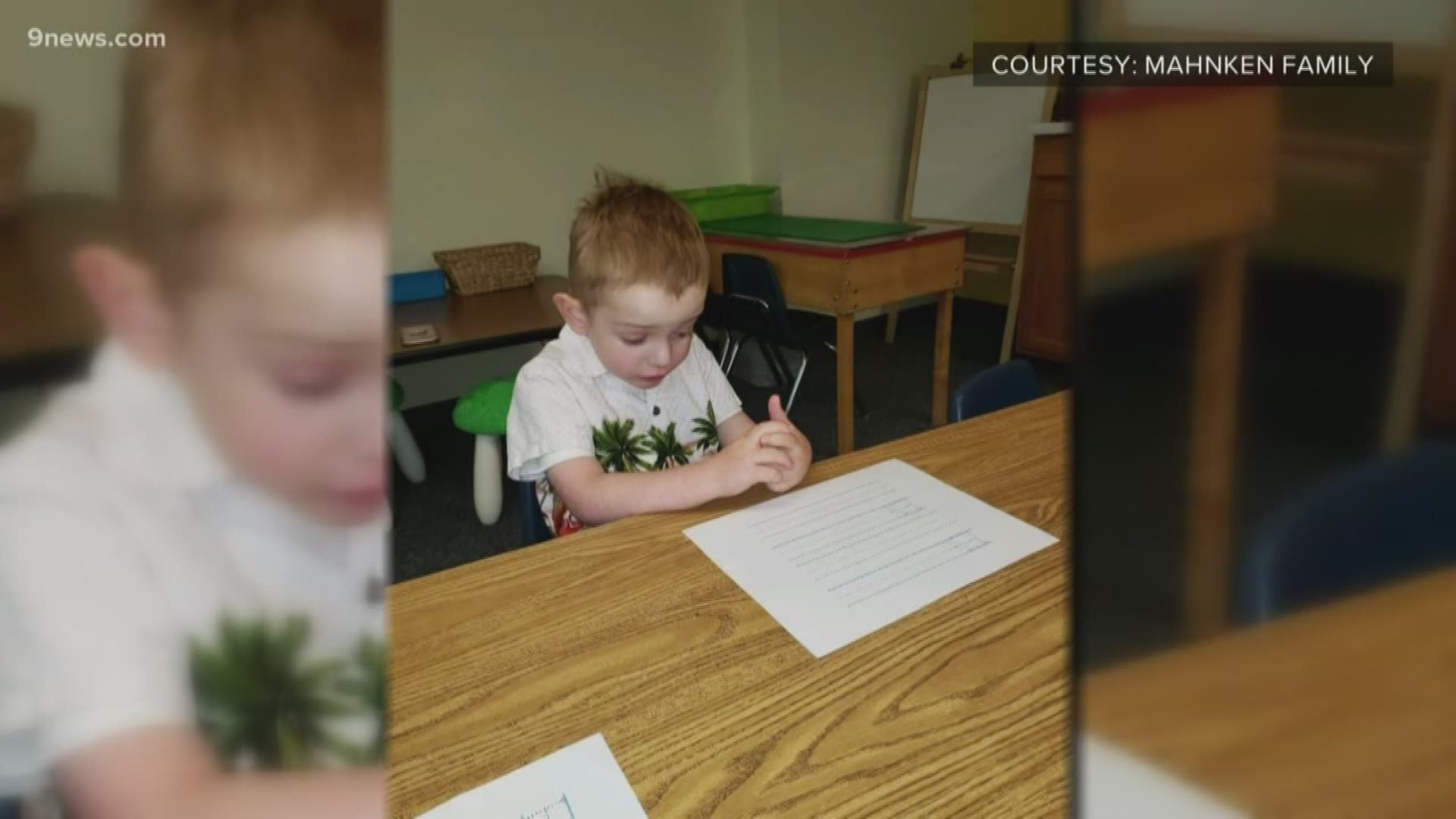AURORA, Colo. — New research is helping a 4-year-old boy by providing innovative options to treat a rare form of childhood cancer.
University of Colorado Anschutz Medical Campus researchers can now take a patient's tumor cells, load 140 FDA-approved drugs into a machine and run hundreds of different drug combinations to see which will kill the patient's tumor cells.
“It’s basically a modified jet printer, but instead of shooting ink, it’s shooting drugs," said Andrew Donson, a senior research associate at the Anschutz campus.
"The green light is the cells dying," Donson said while watching playback footage. "You can see they're now curling up."
The treatment worked well for 4-year-old Eli Mahnken. At 2 years old, doctors found a tumor that stretched from Eli's brain stem down through his neck to his shoulders.
Eli, a bubbly toddler who loves superheroes, immediately underwent an 11-hour brain surgery to remove the tumor.
Weeks after the surgery, doctors informed his parents — Dave and Heather Mahnken — that the tumor had grown back by over 50%.
“You go from this joyous feeling that life’s gonna be okay to just crushed," Dave Mahnken said.
Doctors tried traditional cancer treatments like chemotherapy, but it was ineffective, so they turned to the new research at the Anschutz campus.
Heather Mahnken said the doctors then used to research to learn what would work for Eli. They prescribed the oral drug Trametinib, a MEK inhibitor drug, to treat Eli.
"I call it a miracle," Heather Mahnken said. “For me the MEK inhibitor is like hope. We've had an amazing two years."
Eli's been able to go to school, and the family said they have been able to live a more normal life.
“Some day there will be a cure for this, and some other family won't have to deal with it," Dave Mahnken said.
Eli has since stopped taking the cancer drug to let his body rest for the next three months. The family and doctors are waiting to see how the treatment worked.
The Morgan Adams Foundation funds the pediatric brain research at the Anschutz Medical campus.
SUGGESTED VIDEOS | Feature stories from 9NEWS

